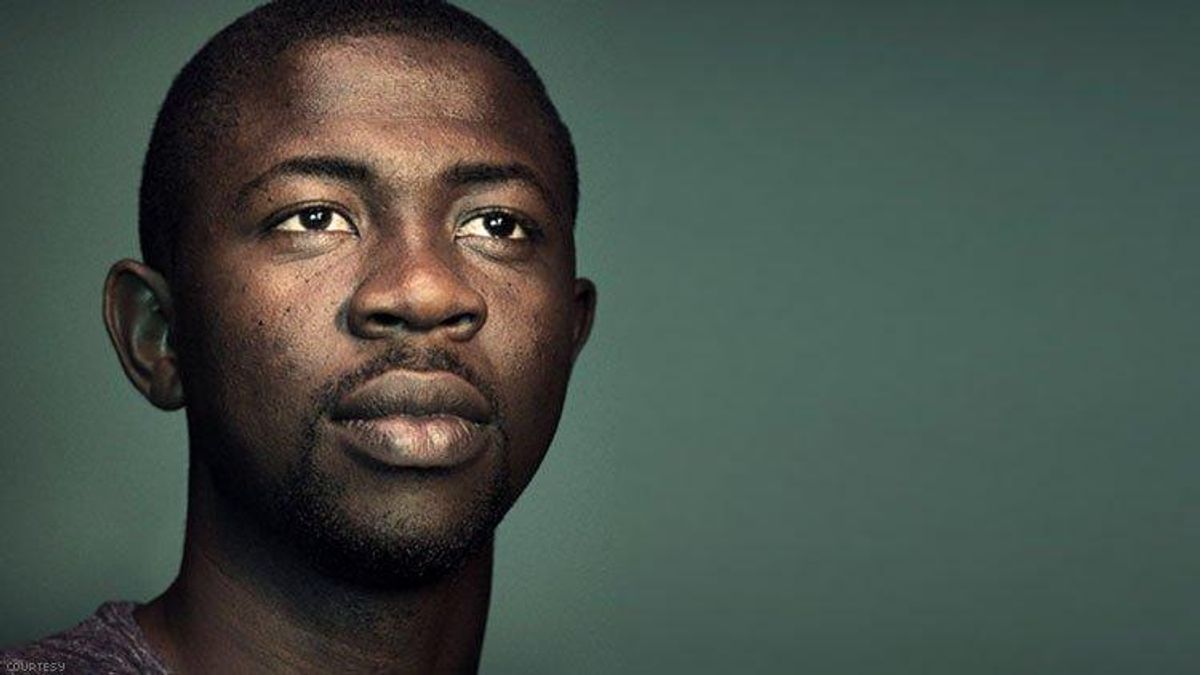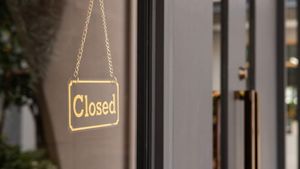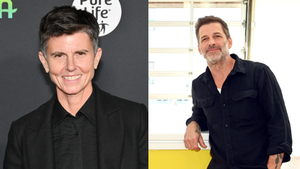In 2014, Nigeria passed the Same Sex Marriage Prohibition Act. The Act banned any form of public affection between same-sex couples, forbid them from living together, and made it illegal to own or operate any bar, club, or organization that catered to gay people. Punishments ranged from 10-14 years in prison.
Edafe Okporo grew up in Nigeria and even before the law was passed, being gay in the country was far from easy. Gay people would find each other and build community at underground parties where they'd meet, dance, and do drag, as well as learn about safe sex and get tested for HIV.
For those in and out of the queer community, the lack of sex education created stigmas against HIV that remain strong to this day.
On this week's episode of The Advocate's LGBTQ&A podcast, Edafe talks about these stigmas, Nigeria's underground parties, and why he was forced to seek asylum in the U.S.
Read an excerpt below and listen to the full interview on Apple Podcasts.
Jeffrey Masters: What was the gay community like in Nigeria when you lived there?
Edafe Okporo: HIV rates among gay men in Nigeria is very high, so they have what they call Underground Parties. Underground Parties are an opportunity for health care providers to be able to test gay men. Inside the Underground Party, people change into drag and behave in a way that is just disruptive.
And then people get tested, people meet sexual partners, people get condoms, lube, sexual health education. That was when I discovered that there is a community which is underground.
JM: So, it's testing, it's education, and it's a party all in one.
EO: People drink, people party, people change into drag. People travel from rural areas just to attend and to be able to find community.
JM: There's a stigma against just being tested because then they'll assume you're gay.
EO: Yeah. In March 2013, the government created a law that discriminated against gay people accessing health care services. That discrimination led to a prohibition of gay men having sexual intercourse by saying that the law prohibits it by 14 years imprisonment and 10 years for service providers. They believe that they're the cause of why gay men exist in the country.
Secondly, people believe that an HIV-positive person could transmit HIV through touching or kissing because of low forms of education… Until we started hearing news that Princess Diana and other people have kissed HIV-positive people, there was a stigma.
They now believe that gay people are the cause of why HIV is being spread around the country because they say gay people have sex with animals or things like that. That perception really made HIV stigmatized in the community and there is an internal stigma within the gay community for people who are HIV-positive.
JM: How have you personally seen this stigma played out?
EO: The fight that led me to be displaced from Nigeria was when the government of Nigeria passed the Same-Sex Marriage Prohibition Act that prohibits people from being able to be gay. Showing of public affection is criminalized by 10 years imprisonment.
And there are several states in Nigeria which practice Sharia Law. In Sharia Law, [being gay is] punishable by being stoned to death. I know of lesbians that have been put in a drum and drowned to death or were beaten on the streets.
I myself, I've been the victim of mob violence whereby I try to meet somebody on the gay dating app they lure me in and other guys come in beat me up and shame me.
Have you watched Game of Thrones? You see when Cersei walked... I went through the Walk of Shame. You're nude, being beaten. That led me to form a community organization called the International Center for Advocacy on Rights to Health. They advocate for gay men to be able to have access to treatment.
That work put me at risk. In 2016, after I returned from the World AIDS Conference in South Africa, a mob came to my place, broke my door, dragged me out, beat me on the streets, stripped me naked, and made me do the Walk of Shame.
After that incident, I blacked out. I was taken to a clinic and when I woke up, I knew that if I wanted to live, it couldn't be in Nigeria anymore.
JM: You're now living openly in New York City.
EO: Living in America, especially in New York City, has made me understood that if you are not yourself, you're just doing a disservice to yourself. When you truly live free of any judgments, it gives you that form of life that you never ever expected.
Smile every day, that was a dream I had as a child. I just want to be happy and being happy is not being in any form of closet.
If you're able to voice it out to one person, it gives you that form of strengths to be able to move on with it. Even though you can't voice it to anybody, just run on the streets and shout, "I'm gay." I think that knowing that this is who you truly are helps you to be better.
Listen to the full podcast interview on Apple Podcasts.
LGBTQ&A is The Advocate's weekly interview podcast hosted by Jeffrey Masters. Past guests include Pete Buttigieg, Laverne Cox, Niecy Nash, and Roxane Gay. Episodes are released every Tuesday.
Edafe Okporo is the Executive Director of the RDJ Refugee Shelter in Harlem.








































































